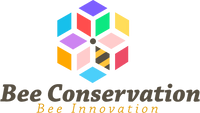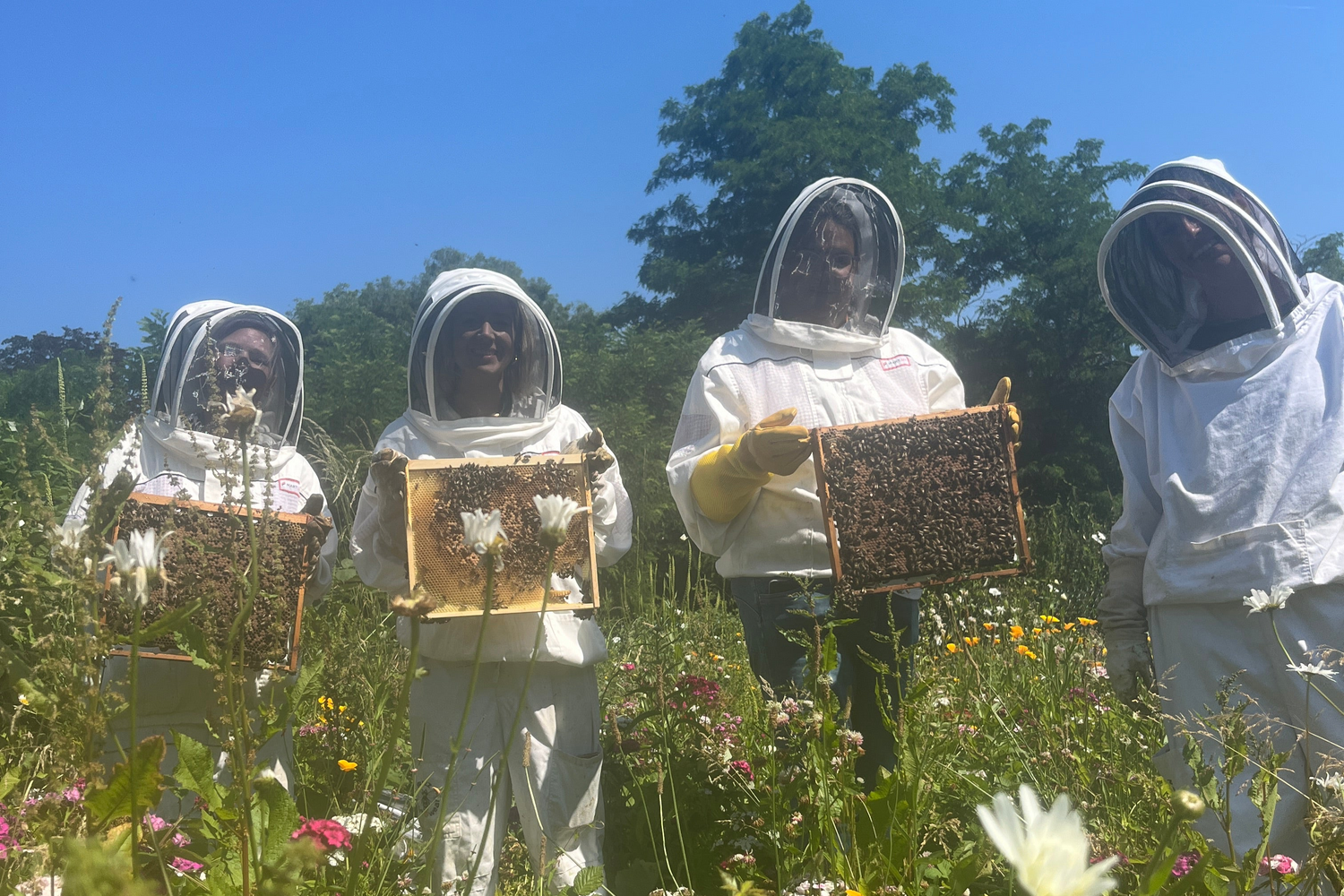Staff Engagement
Managing a team can be challenging, especially in times of disconnection. Engaging your staff is key to fostering teamwork and unity, rather than as individuals. Prioritising workplace well-being is more important now than ever. A positive work environment is essential for building strong relationships within your company and supporting the overall health and well-being of your team.
During our hive visits, your staff can enhance their understanding of biodiversity and environment conservation by actively shadowing our experienced beekeepers. From inspecting the bees, and learning about sustainable practices to tasting fresh honey from the hive, this is a valuable experience for your team.
Weekly Staff Visits to Your Beehive:
Each week, you'll have a dedicated 30 to 40-minute slot for your team to visit the beehive. We recommend setting up a rotating schedule, so everyone gets the chance to experience and enjoy the bees.
We offer a variety of activities that can be conducted at your office or as part of an offsite day. Choose between two beautiful locations in the Kent countryside: Hands of Hope or Whiterocks Farm College.
As you step onto the grounds of Hands of Hope or Whiterocks, you'll be instantly captivated by the stunning natural beauty that surrounds you. Each location has its distinct charm—whether it's the picturesque apple orchards and friendly animals at Whiterocks or the vibrant community spirit and thriving food gardens at Hands of Hope. Both sites promise an unforgettable experience that will leave a lasting impression.
The benefits of this program extend beyond just time outdoors. Engaging with the bees will help your staff develop teamwork skills, reduce stress, and enhance the sense of responsibility and connection. Check out our blog post about bees’ influence on our mental health and wellbeing here.
How Does Team Building Work?
The Beehive Model
Bees provide a perfect example of effective team building. In a hive, each bee has a specific role that contributes to the colony's success. As worker bees age, their responsibilities evolve—from feeding the larvae to ventilating and cooling the hive, cleaning, and finally, venturing out to collect food. These tasks are performed simultaneously by bees of different ages, all working together harmoniously.
The hive operates with a clear and well-understood structure. Communication is key; for example, bees that gather food relay vital information to guide others to the best sources. This cooperation ensures that the entire hive thrives.
Similarly, successful teams are composed of individuals with diverse skills, values, and experiences. These differences, when harnessed correctly, enable the team to function efficiently. Like bees in a hive, team members willingly contribute to the group’s success, each playing a vital role in ensuring that the team has the resources it needs to excel.
Benefits of Team Building:
- Enhances morale and leadership skills
- Identifies and removes barriers to creativity
- Clarifies objectives and goals
- Optimizes processes and procedures
- Boosts organizational productivity
- Highlights team strengths and areas for improvement
- Strengthens problem-solving abilities


